Every Week, Odisha Doctor Walks for Kilometers to Ensure Tribals Get Medical Care!
For the last two years, Dr Chittaranjan Jena and his team have been visiting interior villages of Odisha to provide healthcare support.
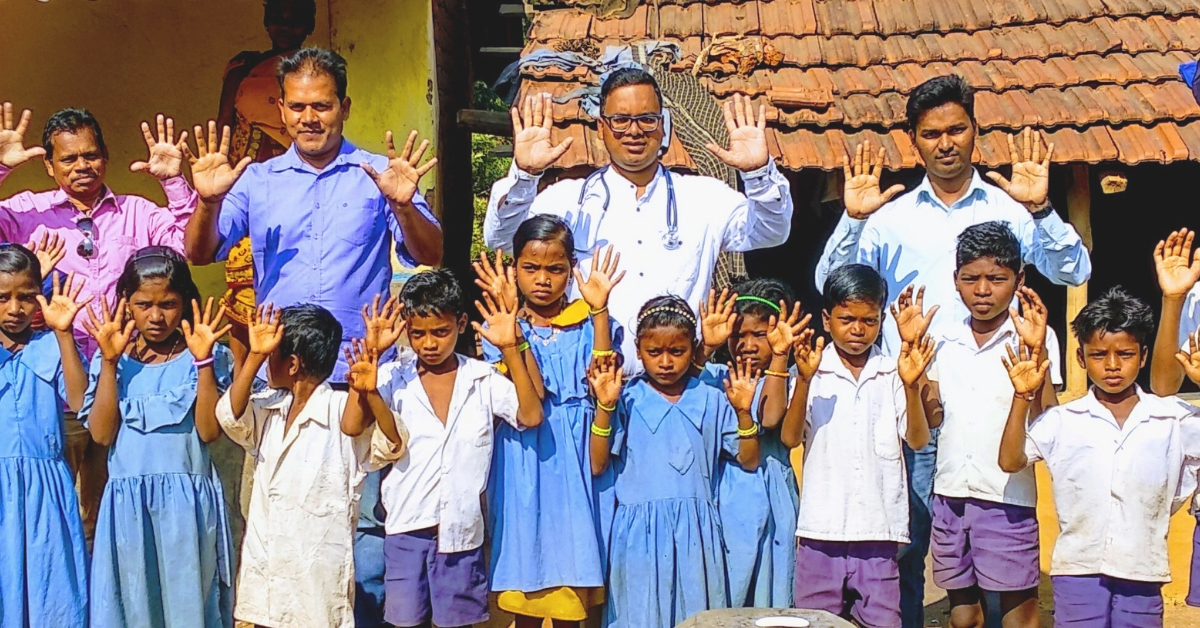
The KBK region in Odisha comprises Koraput, Nabarangpur, Malkangiri, Rayagada, Sonepur, Balangir, Kalahandi, and Nuapada districts.
It is home to thousands of tribal villages, where people continue to live in abject poverty and compromised living conditions.
One of the most backward regions in the country, it has a high rate of maternal and infant mortality. Additionally, it also suffers from low human development indicators such as poverty, poor health, sanitation, malnutrition, illiteracy as well as unemployment.
However, a government medical officer in Odisha is striving hard to change that.
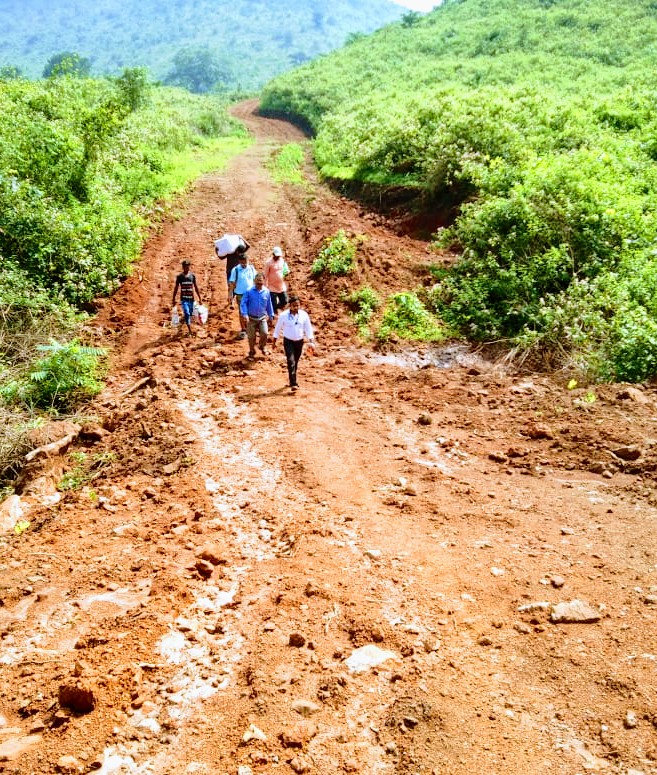
For the last two years, Dr Chittaranjan Jena and his team of medical practitioners have been visiting 12 villages in the Dasmantpur block of the Koraput district, with the intention to provide healthcare to the residents, who cannot afford to buy food let alone head to the towns and cities for medical attention.
The villages are—Ghatmundar, Alchi, Baghalamti, Kalati, Gadri, Haladisil, Bendela, Ambaguda, Koraguda, Phundaguda, Gadaligumma, and Laresh, and the team visits one village every week, once their work hours end.
The Better India spoke to Dr Jena when he was in the midst of a field visit to one of these villages, which is located four km away from his PHC (primary health centre) in Dasmantpur.
“Sometime in 2007, a cholera outbreak in Dasmantpur claimed the lives of about 350 people and affected the health of thousands. This incident is the reason why I decided to pursue medicine. However, it was only in 2016 when I got my first posting as a medical officer in Koraput, that I saw the heartbreaking reality of healthcare service in the KBK region up close. I decided that I really wanted to better their lives through medical facilities.”
He set up a committee named, ‘Gaonku Chala Committee,’ which means ‘let’s go to the villages,’ with his fellow medical practitioners.
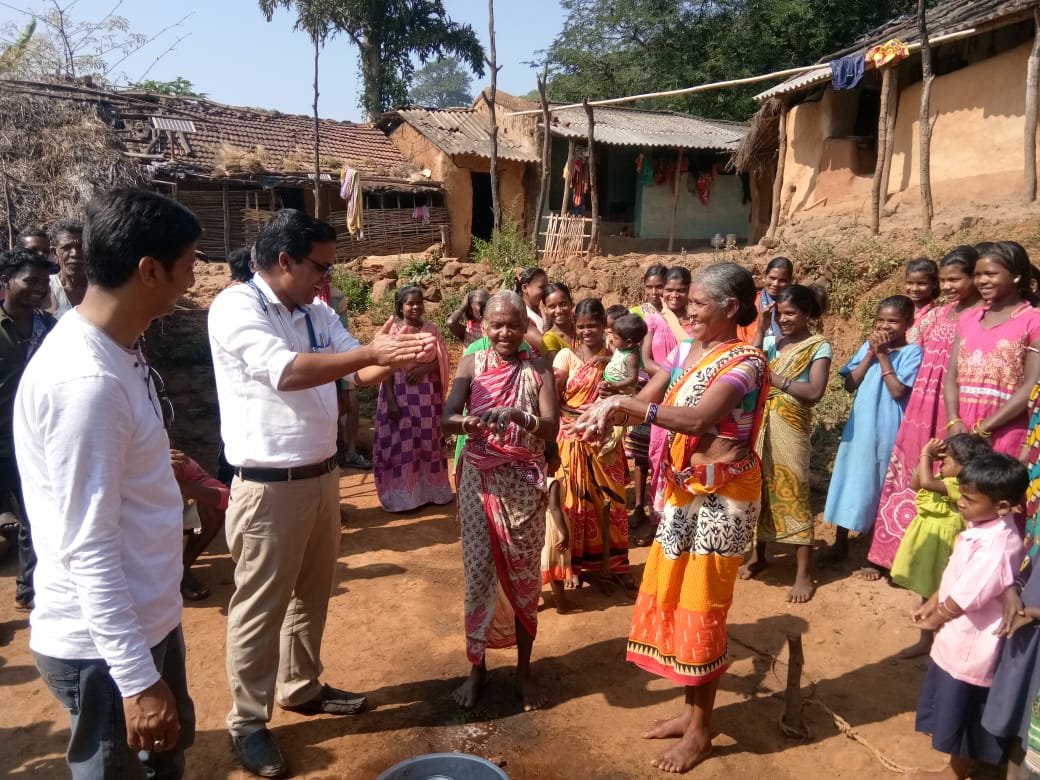
They are—Trilochan Jena and Sanjeev Kumar Tripathy, both pharmacists; Rajesh Ranjan Satapathy, Rita Hial, and Sanjukta Patro, all health workers; Rabindra Kumar Sagar, a work assistant; and Mr Basudev Jani, a social worker.
So what exactly do they do during these weekly visits?
“Our primary agenda in these villages was to raise awareness about good sanitary practices with the primary focus on hand-washing. For instance, we would provide a bar of soap to every single house in a village and explain how this simple habit, if effectively practiced, would help them in combating waterborne diseases like diarrhoea and cholera,” explains Dr Jena.
Their next objective was to supply each house with mosquito nets.
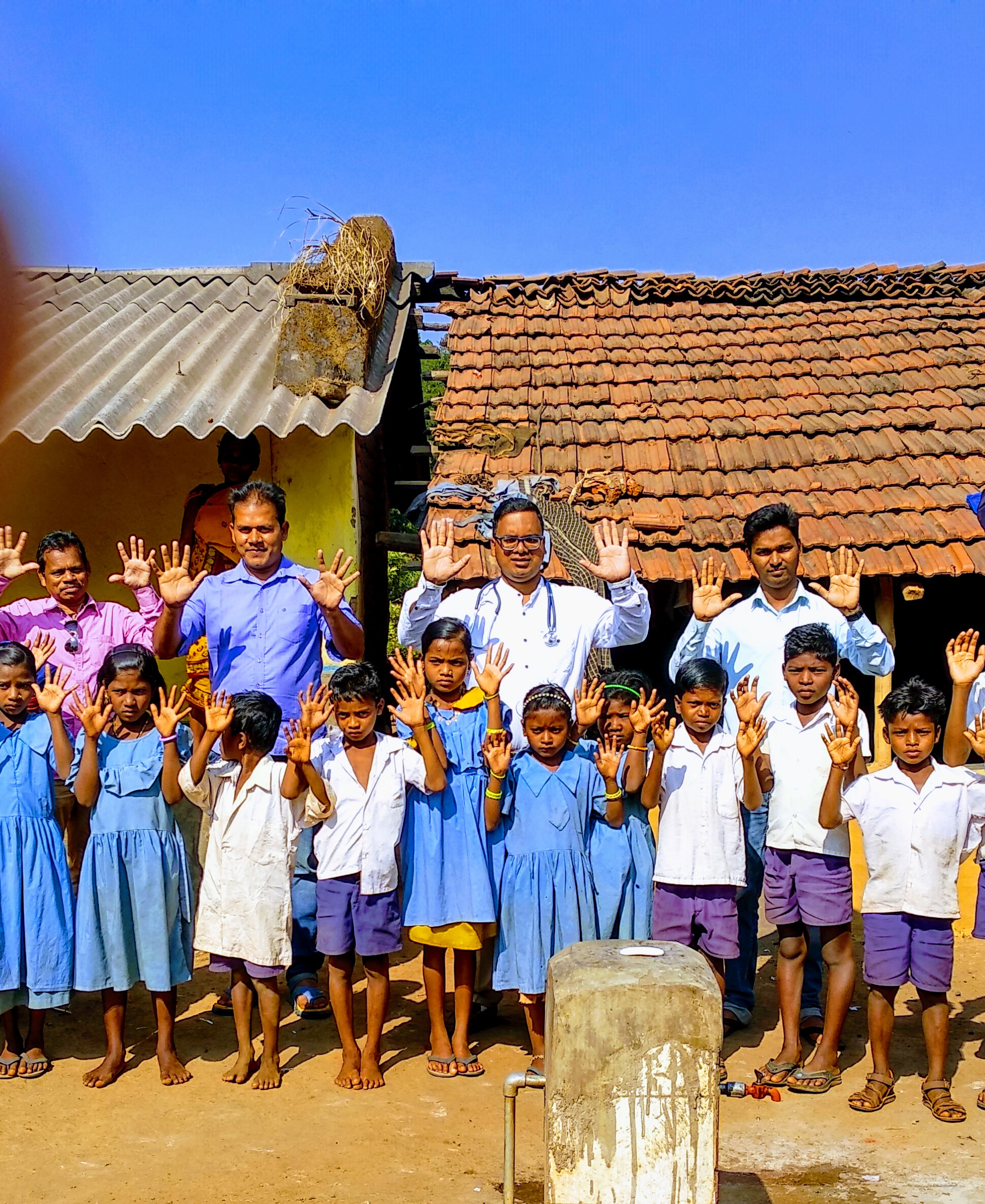
“But before that, we explained the purpose of these nets and why these were important in the prevention of diseases like malaria and dengue. Additionally, we cleaned these villages to prevent water logging, and began raising awareness about the importance of cleanliness, sanitation and safe drinking water in schools,” elaborates Dr Jena.
The team also conducted routine health check-ups, distributed free medicines to the needy, and counselled the villagers on issues like alcoholism and child marriage.
Once the initiative showed some positive results, the team took a pledge, along with the people, to commit to the cause of the Swachh Bharat Abhiyan.
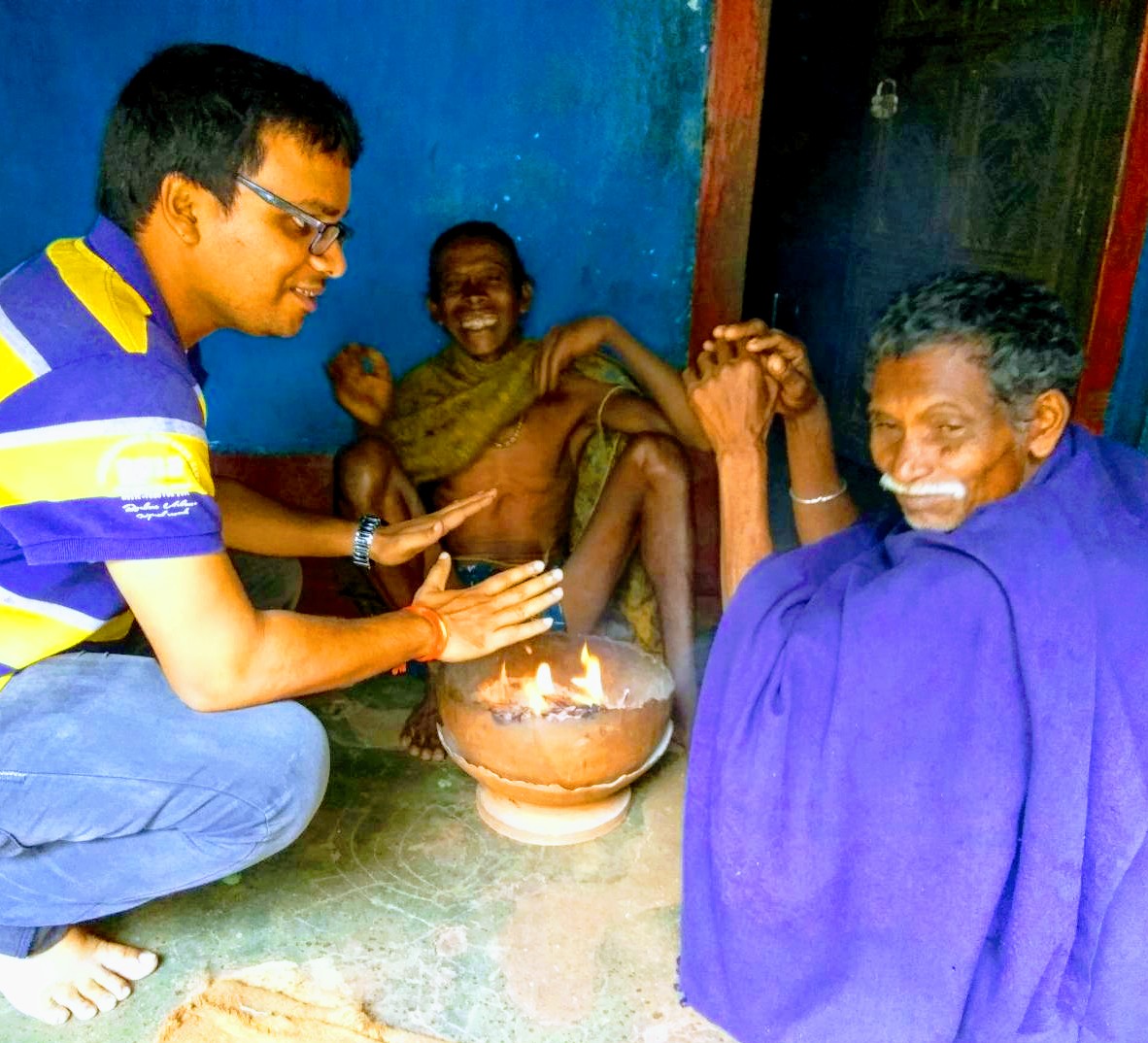
Eventually, they introduced another remarkable initiative named Swasthya Sahayaka Bahini (SSB), under which they select and collaborate with a few villagers in every village. These villagers are given the responsibility to report any health issues which arise in their area, to medical authorities like ASHA and ANM workers or even government medical officers.
Thanks to Dr Jena efforts, things have indeed begun to look up for the impoverished tribal communities in the Dasmantpur block. In fact, the initiatives led by the Gaonku Chala Committee are slowly being recognised and even celebrated by the local media.
You may also like: All-Woman NGO in Odisha Is Helping Isolated Villages Keep up With the World
“Change is happening. Many medical officers in other areas have been employing similar initiatives in their jurisdiction. Even the Odisha state government is planning a parallel programme with the same goal of making ideal villages like what we have envisioned. Till now the Dasmantpur block was known for its high mortality and backwardness, but we are hopeful that soon, it will become a become a model health block, and a positive example for the whole state,” adds Dr Jena.
When asked to share a few words of motivation for those who wish to serve the needy and underprivileged, Dr Jena improvises on a quote by the former president, Dr APJ Abdul Kalam.
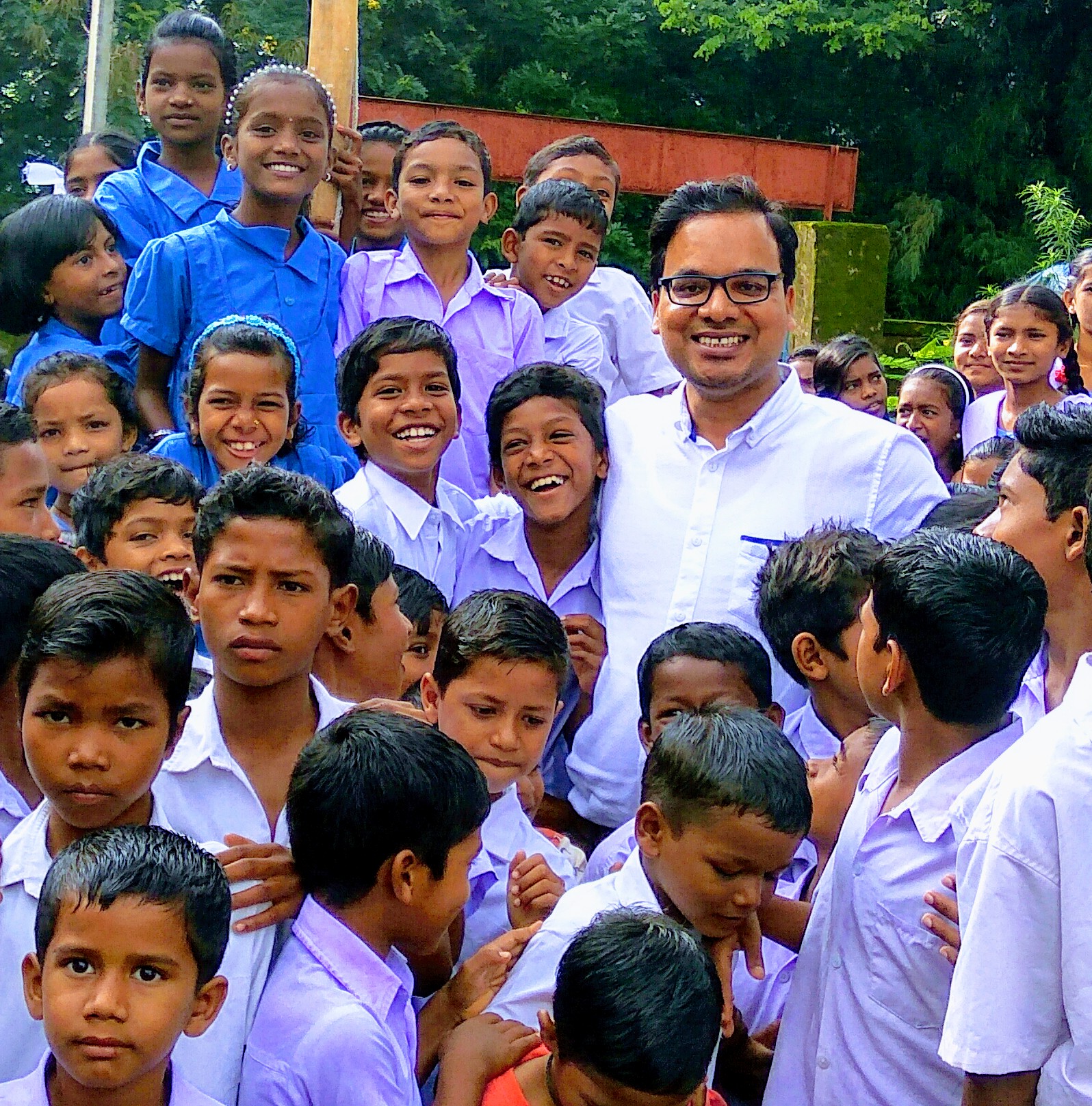
“If people can’t afford to come and avail medical facilities, take these to them. That’ll be the best service you can do for them,” he concludes.
(Edited by Gayatri Mishra)
Like this story? Or have something to share?
Write to us: [email protected]
Connect with us on Facebook and Twitter.

Similar Story

Would Your Parents Support You Taking Therapy? This Mental Wellbeing Survey Reveals an Unseen Change
An ITC Fiama survey on mental health shows 80% of Indians trust their parents to back them in seeking therapy, signalling a change in how its perceived by Gen Z, millennials, and their parents.
Read more >
If you found our stories insightful, informative, or even just enjoyable, we invite you to consider making a voluntary payment to support the work we do at The Better India. Your contribution helps us continue producing quality content that educates, inspires, and drives positive change.
Choose one of the payment options below for your contribution-
By paying for the stories you value, you directly contribute to sustaining our efforts focused on making a difference in the world. Together, let's ensure that impactful stories continue to be told and shared, enriching lives and communities alike.
Thank you for your support. Here are some frequently asked questions you might find helpful to know why you are contributing?


This story made me
-
97
-
121
-
89
-
167












